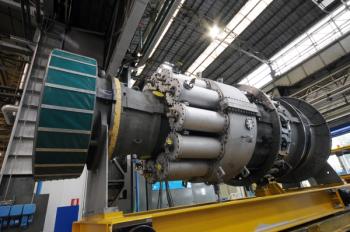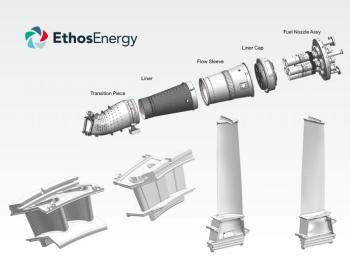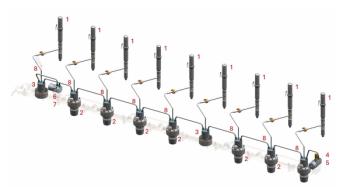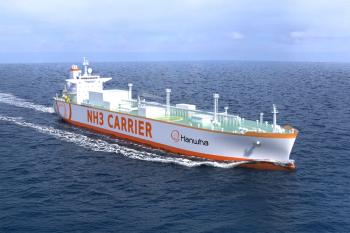
Rolls-Royce, Partners Commission 10-MW Power Plant with CO2 Recovery
Key Takeaways
- Rolls-Royce's Worksop plant captures 30,000 tons of CO2 annually, using it in the food industry, and supports 10,000 households with electricity and heat.
- The Oman project features 12 gensets, improving fuel efficiency and reducing emissions with high-power density and natural gas use.
The plant will capture, purify, and liquefy up to 30,000 tons of CO2 per year, which is then transported via tanker for use in the food industry.
CO2 is separated from the engines’ exhaust gases and captured by a recovery system for processing and liquefaction, with the plant expected to capture up to 30,000 tons of CO2 per year. Once liquefied, the CO2 is transported via tanker from the site for use in the food industry, specifically to carbonate beverages such as beer and lemonade.
“Flexible carbon-capture gas engine power plants are an important technology for ensuring a stable decentralized energy supply while reducing CO2 emissions,” said Michael Stipa, Senior Vice President, Business Development and Product Management Stationary Power Solutions, Rolls-Royce Power Systems. “This plant in Worksop is a great example of the future of sustainable energy and of a successful partnership between technology companies that want to make a difference.”
The plant will generate and transmit electricity into the local grid for approximately 10,000 households, bolstering its stability during the process. Also, it will supply heat for local households and carbon-capture processes. ASCO Carbon Dioxide will design and operate the carbon capturing and processing plant to ensure high-purity CO2 production. Landmark Power Holdings has developed and will operate the plant in cooperation with Victory Hill.
Power Generation in Oman
In April 2024, Rolls-Royce completed the delivery of 12 generator sets (gensets) to a gas power plant servicing a large-scale
Rolls-Royce collaborated on the project with Al Faris Equipment Rentals, a provider of equipment for heavy lifting, transport, and energy solutions in the Middle East and North Africa. Al Faris oversaw the installation of the power plant in the desert of the western region of Oman. The plant operates with compressed natural gas as fuel, lowering the emissions ceiling as natural gas produces fewer pollutants than burning coal or petroleum products.
Gensets based on the L64FNER gas engine offer a high-power density and reach efficiencies of up to 44.4%—an improvement in fuel/energy utilization at high temperatures when compared to its predecessor. Rolls-Royce’s mtu gas gensets can operate on a blend of natural gas and hydrogen and are optimized for high performance with low emissions. These units are compact and continuously provide 100% capacity power.
Alberta Using Gensets
In November 2024, Rolls-Royce agreed to deliver 10 mtu Series 4000 L64FNER natural gas gensets to
Newsletter
Power your knowledge with the latest in turbine technology, engineering advances, and energy solutions—subscribe to Turbomachinery International today.




